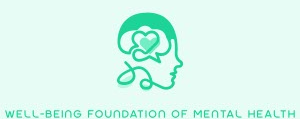MENTAL ILLNESS AND THE ELDERLY
From HELPING SOMEONE WITH MENTAL ILLNESS by Rosalynn Carter.
Copyright 1998 by Rosalynn Carter. Reprinted by permission of Times Books, a division of Random House, Inc.
How often have we heard it said of an elderly friend, neighbor, or relative, “Of course Nancy is depressed. It’s normal for a widow to be depressed.” Or, “Jack will be okay. Give him a couple of months. Everyone gets down after a heart attack.” A recent Harris poll commissioned by the Geriatric Psychiatry Alliance found that 93 percent of Americans believe depression is a “normal” and inevitable reaction to disease and not an illness in itself.
The truth is, no matter what one’s age or situation, depression is not “normal.” It is an illness that can be treated effectively. As Jimmy and I explained in our book Everything to Gain: Making the Most of the Rest of Your Life, most older Americans are not depressed. They cope well and lead remarkably active, productive lives. Even among those who must endure medical illness, financial reverses, and personal loss, many remain mentally healthy. Although multiple forms of mental disorders can begin late in life, they are not an inevitable part of the aging process.
And yet, of the 32 million Americans over age sixty-five, an estimated four million suffer from dementing disorders, including Alzheimer’s disease; nearly 5 million experience serious symptoms of depression; and 1 million suffer from major depression. In addition, many elderly people experience anxiety, stress, sleep disorders, loneliness, social isolation, fear of abandonment, and abuse.
Depression is the most common disorder and the leading cause of suicide among the elderly. Although 13 percent of the U.S. population is over age sixty-five, this age group accounts for 20 percent of all suicides. Men who are seventy-five years or older have the highest suicide rate of any age group, worldwide. And 90 percent of those who commit suicide have at least one diagnosable mental or substance abuse disorder.
What can account for these disproportionately high numbers among the elderly? Many are not getting needed psychiatric services — either because they or their families do not recognize and/or report their symptoms to their physician or because medical professionals fail to recognize the problem.
Apathy or vague physical complaints can also mask depressive symptoms. Studies have shown that three quarters of elderly men who committed suicide saw their doctor in the month before they killed themselves, but practically none had consulted mental health professionals and very few had received appropriate treatment.
Depression can also be dangerous for the elderly because it aggravates other medical conditions. Studies show it significantly increases the rate of stroke and the risk of heart attack, hip fracture, and severe infection. There is some debate in scientific circles as to which
comes first — the mental illness or the medical condition. In the case of heart disease, for example, one group attributes heart disease to biochemical changes in the brain (the secretion of stress hormones) in those who are depressed, causing erratic heartbeats and increased cholesterol levels. The other group believes that those who are depressed are less likely to be vigilant about their diet, medication schedule, or the management of high blood pressure, thereby predisposing themselves to heart attacks.
Mental or emotional disorders in elderly citizens can also be caused or aggravated by physical illnesses or their treatments. Drug reactions, unrecognized endocrine problems (low thyroid function, for example), pain from osteoporosis or arthritis, and even undiagnosed hearing or visual impairment can account for about half of the elderly patients seen in mental health clinics and hospitals. Depression and anxiety disorders can also accompany cancer, insomnia, diabetes, strokes, influenza, post-surgical confusion, and Parkinson’s disease.
Depression among the elderly is often misdiagnosed. In some cases, the confusion and memory loss associated with it can be mistaken for Alzheimer’s disease or “senility.” If depression is truly the cause of these symptoms, it can be reversed with proper treatment. Alzheimer’s, the slow deterioration of brain function eventually leading to death, will not improve with therapy, but treatment can enhance an Alzheimer’s sufferer’s quality of life and coping skills.
Because depression can impair one’s judgement, the safest course of action is to seek medical care from a professional trained in geriatric psychiatry, as Eunice McKinnery did.
“I just wanted to lie down, and I didn’t want to be bothered with anyone,” Eunice recalled. “I had a bad feeling.” But her family realized that her lethargy and lack of appetite were a problem and took her to the geriatric psychiatry wing at Wills Hospital in Philadelphia. Within a few weeks she was back in her apartment, “feeling fantastic,” Eunice said.
Unfortunately, many elderly are not so lucky. Harry Nance, sixty-six, was misdiagnosed for decades. He finally got help when “I did something that old hill folks don’t like to do.” He asked for food stamps. When he did, a perceptive caseworker told him she would get food stamps for him if he saw someone for treatment. He did. His depression was stabilized, and he was able to return to his original profession.
I fully agree with Ira R. Katz, past president of the Geriatric Psychiatric Alliance, who testified before Congress, “We have an optimistic view of the aging process and a conviction that older people have an impressive ability to lead pleasurable and meaningful lives in spite of the stresses of aging and medical illness, if, but only if, their depression is recognized and treated.”
Grateful acknowledgement is made to Mrs. Rosalynn Carter for permission to reprint the above excerpt.
